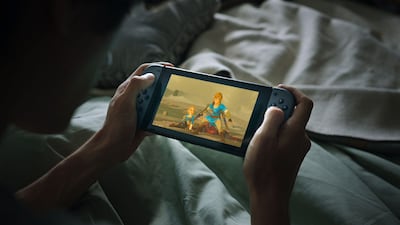I have a friend who will never let me forget a piece of bad advice I once gave him. It was 2001 and he wanted to know whether he should buy the new Nintendo GameCube, Sony’s PlayStation 2 or Microsoft’s debut video game console, the Xbox.
I told him to go with the GameCube. Oops.
Bear with me, because there was method to my madness. Or so I like to tell myself.
Nintendo’s previous console, the N64, was great. It had fantastic titles including GoldenEye 007 and Star Wars: Rogue Squadron, which are games I still remember fondly. The first PlayStation, its main competitor at the time, had a lot of good sports titles but I felt you were better off with Nintendo if you weren’t into those.
Microsoft, meanwhile, was a newcomer to consoles. No one knew at the time that it would eventually become a juggernaut in the field. Nintendo, on the other hand, had a long pedigree in games. The company knew what it was doing, supposedly.
My friend did indeed follow my advice, only to end up cursing me because of it for the next few years. While all of those PS2 and Xbox owners were having a blast playing the likes of Grand Theft Auto 3 and Halo, my friend and a few million other unlucky suckers sat around watching their GameCubes collect dust as game developers avoided it like the plague.
I tried to comfort my friend by telling him that I too was one of those suckers. Of course, as someone who wrote a lot about video games, I also happened to own the other two consoles in addition to the GameCube. I usually left that part out of our conversations.
It turns out Nintendo made some fatal miscalculations. Unlike its competitors, the GameCube couldn’t play movies and used smaller mini-DVDs, which had less storage capacity than regular-sized discs.
Games had to be smaller as a result, which resulted in lower-quality graphics and features than competitors. The GameCube also wasn’t properly geared for online play, which was starting to become a thing.
Ultimately, Nintendo was trying to be different, which in the world of technology is normally an admirable trait. In games, however, it’s the kiss of death.
Third-party game makers like to design their titles once and have them work across a range of hardware platforms. They hate having to spend extra time and money significantly tweaking those games for one specific console.
The GameCube wasn’t a one-off aberration in this respect. Nintendo has been making the same mistake over and over ever since.
It was the same with the Wii in 2006, and the Wii U in 2012. Both offered innovative gameplay in the form of gesture controls and a tablet-like interface, respectively, but again, they were too different from their competitors. Game developers stayed away and the machines fizzled out. A console is only as good as its library, after all.
History looks to be repeating itself with the Switch, Nintendo’s seventh major console, which launches on March 3.
As with its three immediate predecessors, the Switch’s main selling point is its differentiation. Rather than just being a home console, it also features a tablet-like controller that can be separated from its dock and played on the go. It’s the first two-in-one console that delivers the same gameplay whether it’s being used at home or portable.
But just like its three immediate predecessors, the Switch is very different from its competitors and is launching with a dearth of games as a result.
There’s the anticipated Nintendo-developed Legend of Zelda: Breath of the Wild and 1-2-Switch, a collection of mini-games that showcases the console’s unique capabilities.
There are also a few third-party games – Just Dance 2017, Skylanders Imaginators and Super Bomberman R – the first two of which are already available on other consoles including the Wii U. Add in a few smaller titles from independent developers and it’s an uninspiring line-up to say the least.
I spent some time playing the Switch at a press event recently and it did little to inspire me. The portability function is neat, but it’s not enough to convince me to plop down my money.
Evidently, with the lack of supporting titles so far, third-party game developers are feeling much the same, which is why we shouldn’t expect the catalogue situation to improve much over whatever the lifespan of this console might be.
If only my friend were to once again ask me which console he should buy, I could perhaps make it up to him. I’d steer him clear of the Switch, which is looking like it’s going to be as much of a dust collector as every other console Nintendo this millennium.
Peter Nowak is a veteran technology writer and author of Humans 3.0: The Upgrading of the Species
business@thenational.ae
Follow The National's Business section on Twitter

